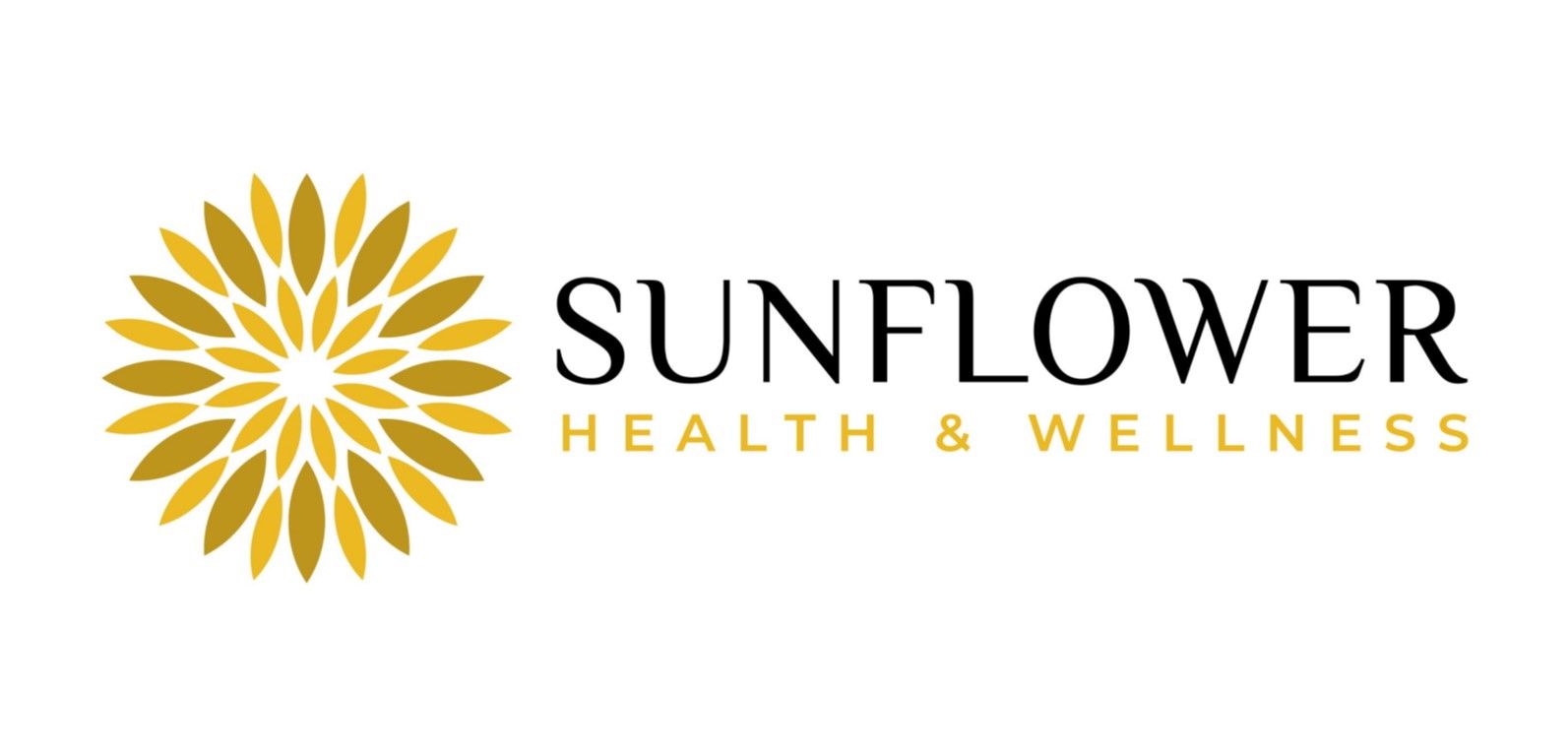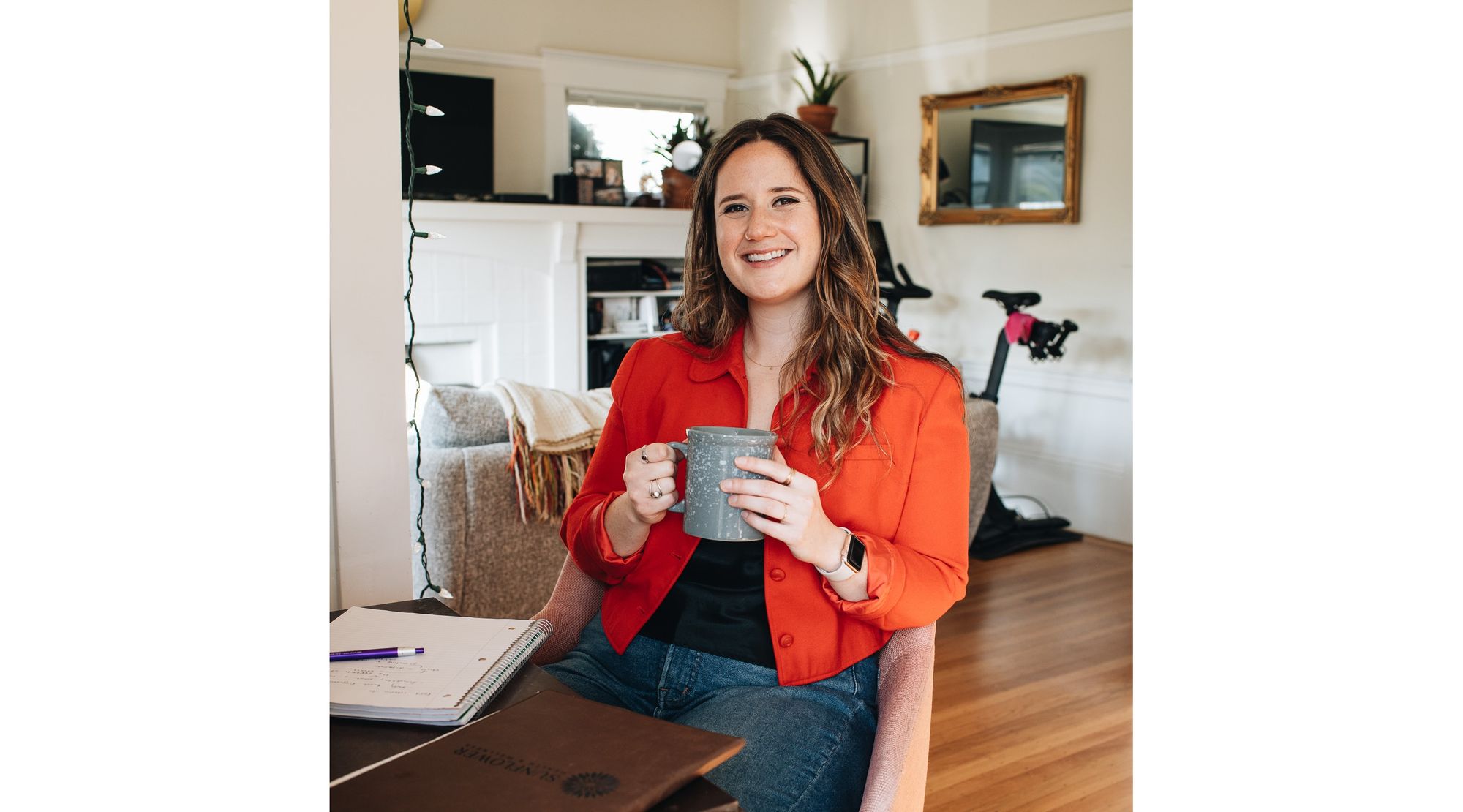Interested in starting your own entrepreneurial journey in health and wellness but unsure what to expect? Then read up on our interview with Sara Vander Zwaag, Founder of Sunflower Health and Wellness, located in Oakland, CA, USA.
What's your business, and who are your customers?
I'm an Intuitive Eating Integrative Nutrition Health Coach. I also call myself a Body Peace Mentor & Recovery Coach. I help people who have been dieting and fighting with their bodies for years learn how to heal their relationship with food, movement, and their bodies. I teach my clients to un-learn diet culture, confront fatphobia, and learn to eat & move intuitively. I also specialize in helping my clients heal their body image and self-relationship as they do this work. Many of my clients grew up in households with parents who were constantly dieting, critical of their kid's bodies, and encouraging disordered eating habits. They grew up into adults who struggle with the diet/restrict/binge cycle, constant body image issues, and resulting negative health outcomes.

Tell us about yourself
For as long as I could remember, I had a difficult relationship with my body. I grew up in a household where my body was scrutinized. My parents constantly dieted, and I was bullied in school for being fat. I felt super aware of my body at all times, and I was deeply insecure. I struggled with bingeing growing up, though I didn't know that's what was happening--I just thought I had a "lack of willpower." I first tried dieting in high school. I tried Nutrisystem and WW (weight watchers) before leaving for college. WW taught me how to starve myself. I learned that if I exercised, I earned more "points," I soon figured out that if I "saved" enough points, I'd lose weight faster. Sometimes I'd go to the dining hall and grab a to-go box to make it look like I had eaten dinner, but it would be empty.
That was my first experience with anorexia, though I didn't really think of it that way at the time, and it didn't last long. A traumatic event during my sophomore year caused me to begin bingeing again. By the time I was a senior, I had leveled out to a relatively healthy relationship with food. I kind of figured my body was what it was, and it would never look like I wanted it to. But when I was 24, the end of a toxic relationship triggered repressed trauma, and I developed PTSD. I had a panic attack every day for a year, totally lost my appetite, and began losing weight--quickly. Even though I was the most depressed I'd ever been, I was elated to be getting skinny, and I clung to that ideal. It was the only source of "happiness" in my life. And after a lifetime of not having the body I wished to have, to be skinny felt like a dream come true. My eating disorder returned, unrelenting, and hounded me for six years.
Towards the fourth year of my ED, my issues transitioned from anorexia to orthorexia. I became obsessed with nutrition, or what I thought of as nutrition (which I now know is toxic diet culture). I was a "clean eater" who felt high and mighty compared to everyone else I knew because I was so "healthy." Meanwhile, I lost my period. My hair thinned. I developed painful acne. My digestion was awful. I was grumpy. I thought about food all day long. I was so hungry all the time, even when I couldn't feel it. I was obsessed with looking in the mirror and taking "progress pictures" of my body. I weighed myself every day and would feel extremely anxious and stressed if my weight went up a single pound. And eventually, I started gaining weight, even though I was still restricting food, over-exercising, and engaging in other ED behavior.
When this happened, I had a realization: I needed to recover. The weird part of this story? All of this happened while I was attending the Institute of Integrative Nutrition to receive my Integrative Nutrition Health Coach credential. It was through attending lectures, realizing how fatphobic the world of nutrition was, and realizing how contradictory all the thousands of food rules were that I came to accept that I had orthorexia. I decided to stop it all. Weighing myself, tracking food--all of it. I embarked on a two-year recovery journey that asked me to redefine my relationship with my body and my health completely. I became an intuitive eater and figured out how to integrate non-diet nutrition. I also started practicing intuitive movement and healed my body image. I began educating myself on the anti-fat bias, especially as it affects the medical field.
Though I had entered school setting out to help people lose weight and maintain that weight loss just like I had (oof), I ended up becoming a coach who helps people make the same journey of healing and recovery that I made. I help my clients make peace with their bodies and actually improve their health--free from the influence of diet culture. It's the most powerful thing I can offer another human. All that I learned in a decade of therapy, all that I learned in recovery, and yes, elements of what I learned in nutrition school combined in a way that I help people feel the happiest in their bodies that they've ever felt in their lives. I don't even need the motivation to do this every day. It is my life's purpose. I couldn't imagine doing anything else.
What's your biggest accomplishment as a business owner?
Honestly, my biggest accomplishment is a repeating one: it's helping my clients heal. All of them--every single one--is my biggest accomplishment. I created a career and life for myself where I'm able to use all my personal strengths (interpersonal relationships, emotional intelligence & empathy, intuition, love, humor, writing skills, curiosity) and all the varied life experiences I've had to help others. That's all I've ever wanted. To help others feel less pain, fear, sadness, and anxiety. One of my clients was eating dinner with her sister when her sister remarked that she had "never seen her so happy before." That is my biggest accomplishment.
What's one of the hardest things that come with being a business owner?
I'd say I struggle with two aspects most of all. For one, the administrative/ organizational part. It's not my forte, and it stresses me out! I worry about forgetting to input an expense into my spreadsheet or making sure I don't forget meetings I've put into my calendar. Ideally, I'd like to eventually hire someone to take care of that side of the business. But more broadly, I think learning to ride the ebbs & flows of the coaching business--the lower income months, the constant need to sign new clients, and the financial pressure I put on myself to succeed--that was one of the hardest lessons to learn. It's something I'm still working on!
What are the top tips you'd give to anyone looking to start, run and grow a business today?
- Start before you feel ready because you'll never feel "totally ready." Just start. You'll learn! You'll improve! Just start.
- Invest in the right mentorship. I love my business coach and learned so much from her. It's as valuable as investing in a new computer, a website, and start-up materials. I also gained a really valuable community of female entrepreneur peers from working with her, and I don't know what I'd do without them!
- Take care of yourself. You are your business, and your business won't succeed if you replicate toxic workplace patterns when you work for yourself. Don't neglect your own health and wellness.
Where can people find you and your business?
Website: https://sunflowerhealthcoaching.com/
Facebook: https://www.facebook.com/savanderzwaag
Instagram: https://www.instagram.com/sara_sunflowerhealth/
Twitter: https://twitter.com/HealthSunflower
If you like what you've read here and have your own story as a solo or small business entrepreneur that you'd like to share, then please answer these interview questions. We'd love to feature your journey on these pages.
Turn your craft into recurring revenue with Subkit. Start your subscription offering in minutes and supercharge it with growth levers. Get early access here.
